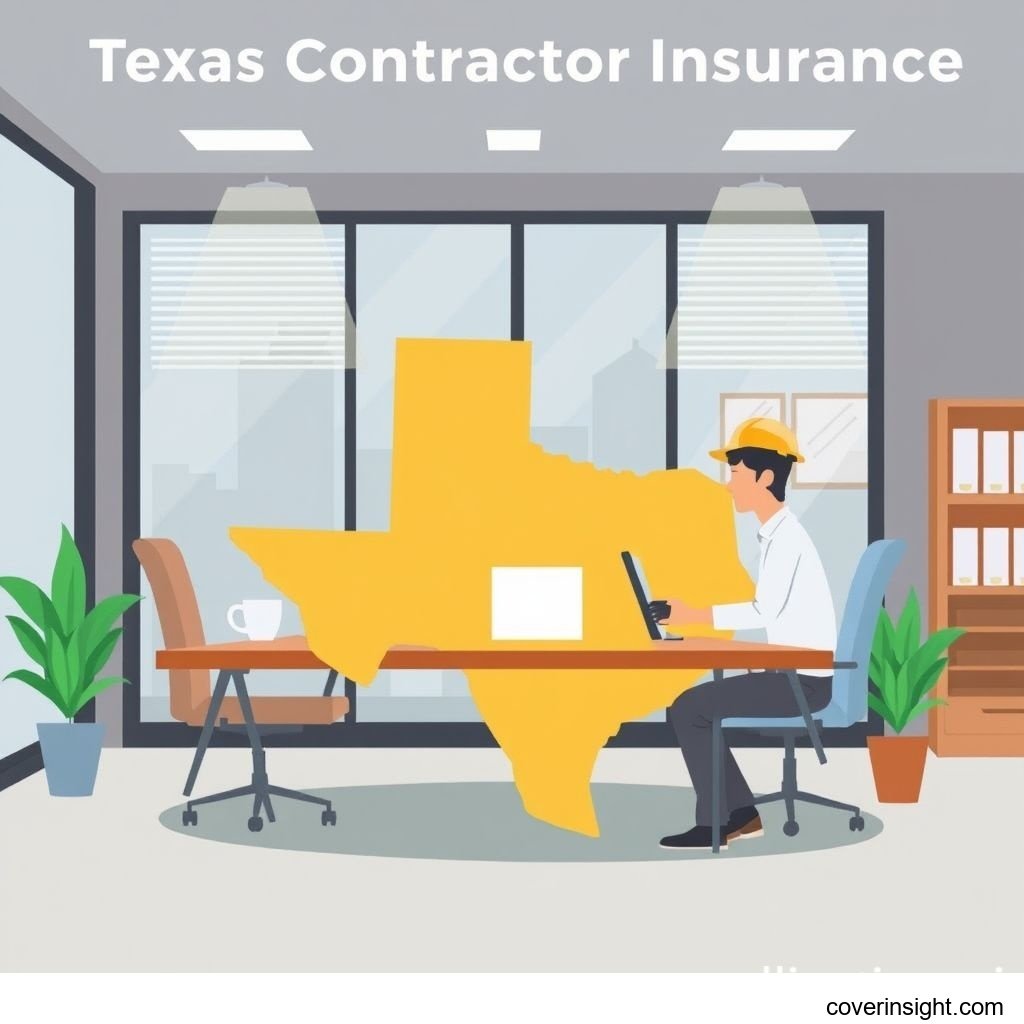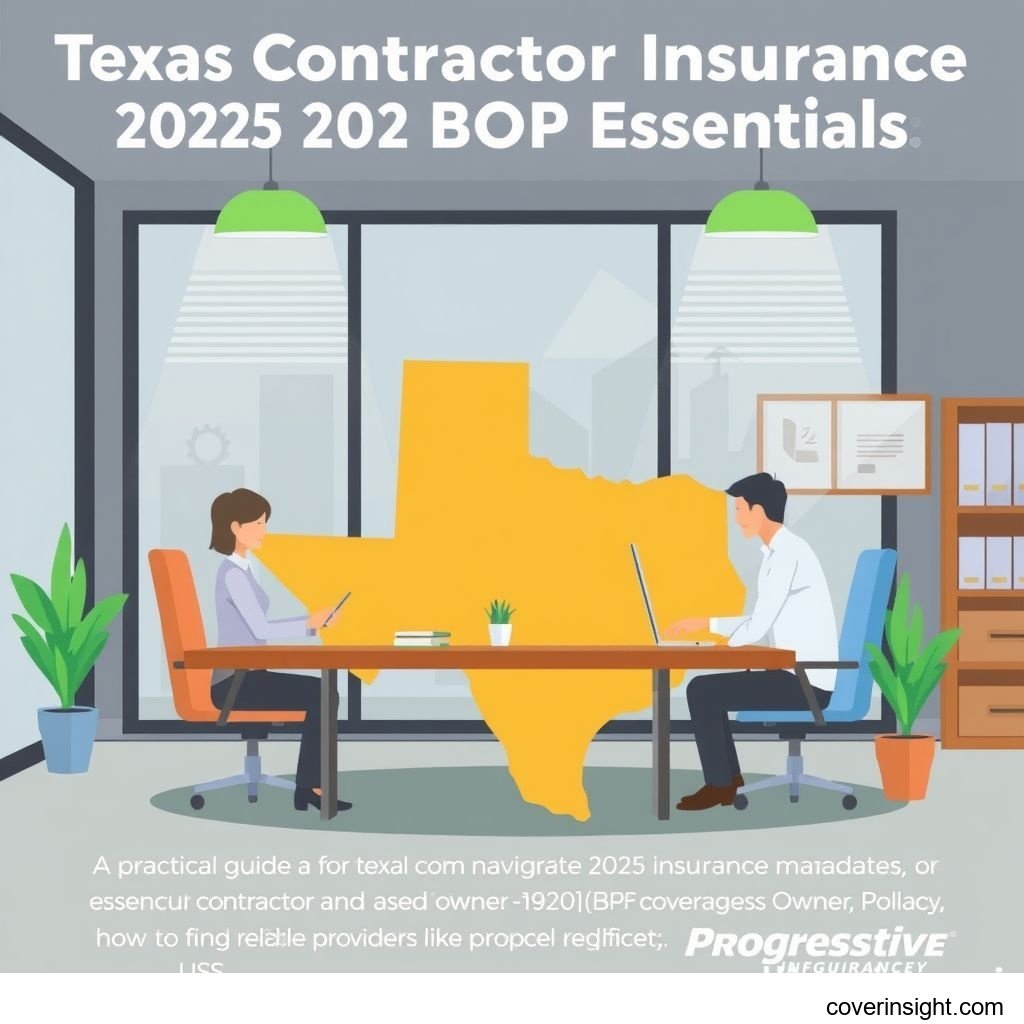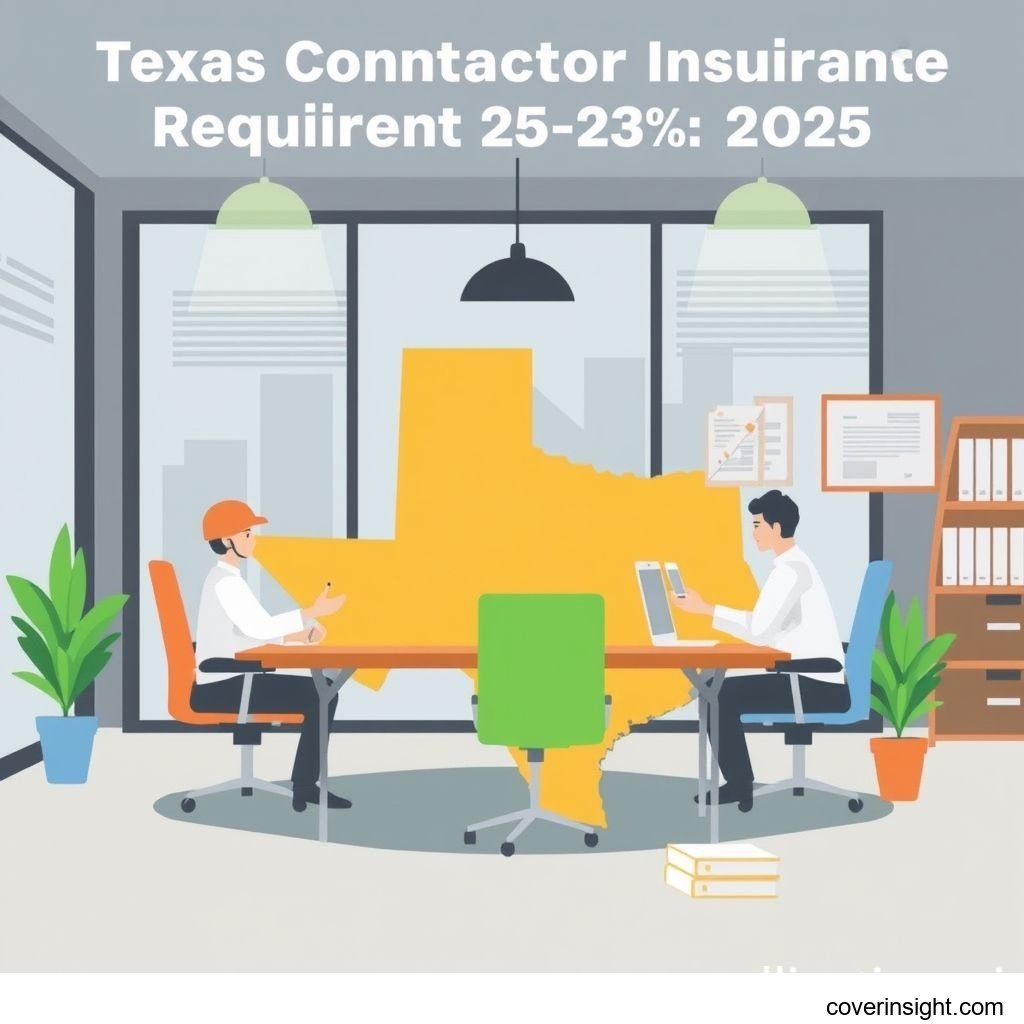Introduction
As 2025 approaches, understanding contractor insurance requirements across the US is more crucial than ever for businesses looking to operate smoothly and protect their assets. For contractors, whether you're building skyscrapers in Houston or renovating homes in Dallas, having the right insurance isn't just a good idea – it's often a non-negotiable part of doing business. It acts as a critical safety net, shielding your company from the financial fallout of unexpected accidents, property damage, or legal claims. Failing to secure adequate coverage can put everything you’ve worked for in jeopardy, potentially leading to devastating losses or even the closure of your business.
Coverage Details
Securing comprehensive Texas Contractor Insurance is paramount, and a Business Owner's Policy (BOP) often serves as the cornerstone of this protection. Many insurers, including major players like Progressive, tailor BOPs specifically for the unique needs of contractors, offering a streamlined approach to essential coverages.
What’s Included
A typical 2025 BOP for a Texas contractor combines several crucial coverages into one convenient package:
-
General Liability Insurance: This is often the bedrock of a contractor’s policy. It covers claims of bodily injury or property damage caused by your business operations, products, or completed work. For instance, if a ladder slips and damages a client’s wall, or a visitor trips over equipment on your job site, general liability would kick in.
-
Commercial Property Insurance: This protects your business property, including your office space, tools, equipment, and inventory, from perils like fire, theft, vandalism, and certain natural disasters. Imagine a sudden storm hitting your storage facility in Dallas, damaging thousands of dollars worth of tools – this coverage helps you get back on your feet.
-
Business Interruption Insurance: Also known as business income insurance, this component provides compensation for lost income if your business operations are temporarily halted due to a covered property loss. It can cover ongoing expenses like rent, payroll, and lost profits while your business recovers.
Progressive, for example, often structures its BOP offerings to be highly customizable, allowing contractors to easily add other coverages like commercial auto insurance or workers' compensation, ensuring a holistic protection plan.
Common Exclusions
While a BOP is robust, it's not a silver bullet. Understanding what’s typically not covered is just as important:
-
Professional Liability (Errors & Omissions): This covers claims arising from professional negligence or mistakes in your advice or design work, which isn't part of a standard BOP.
-
Workers' Compensation: Injuries to employees are generally covered by a separate Workers' Compensation policy, which is often legally required for businesses with employees.
-
Commercial Auto Accidents: While your personal car insurance won't cover incidents involving vehicles used for business, your BOP also won't. You'll need a dedicated commercial auto policy.
-
Intentional Acts: Damages or injuries resulting from intentional harm caused by you or your employees are almost always excluded.
-
Wear and Tear/Lack of Maintenance: Gradual deterioration of property or equipment due to age or neglect is not covered.
Cost Analysis
The cost of contractor insurance requirements in Texas can vary significantly, often feeling like a moving target. It’s not a one-size-fits-all situation, and what one contractor pays might be vastly different from another, even in the same city.
Price Factors
Several key elements influence your premiums:
-
Type of Work: High-risk trades like roofing, demolition, or large-scale construction typically face higher premiums than lower-risk services like painting or landscaping.
-
Location: While not as impactful as the type of work, geographic location within Texas can play a minor role due to local claim rates or specific hazards.
-
Payroll & Number of Employees: More employees and a larger payroll generally equate to higher risk, thus higher premiums.
-
Claims History: A history of frequent or expensive claims will likely lead to increased premiums. A clean record, on the other hand, can help keep costs down.
-
Policy Limits & Deductibles: Choosing higher coverage limits will increase your premium, while opting for a higher deductible (the amount you pay out-of-pocket before insurance kicks in) can lower it.
-
Value of Equipment & Property: The more valuable your tools, equipment, and commercial property, the more it costs to insure them.
Saving Tips
While you can't control every factor, there are ways to manage your insurance costs:
-
Bundle Policies: Many insurers, including Progressive, offer discounts when you bundle multiple policies (e.g., BOP, commercial auto, workers' comp) with them. This can often lead to significant savings, sometimes referred to as "package deals" or "multi-policy discounts."
-
Implement Safety Programs: Proactive safety measures on your job sites can reduce accidents and claims, which insurers appreciate. Investing in safety training and equipment can pay dividends in lower premiums.
-
Maintain a Good Claims History: As tempting as it might be to file small claims, try to handle minor incidents out-of-pocket if feasible to keep your claims record clean.
-
Shop Around: Don’t just settle for the first quote. Get proposals from multiple providers. Comparison shopping can reveal competitive pricing for similar coverage. For comprehensive information, you might visit State Insurance Departments to find your local regulator and resources.
-
Review Your Coverage Annually: Your business needs evolve. Periodically review your policy with your agent to ensure you're not over-insured or under-insured.
FAQs
How much does contractor insurance requirements cost?
The cost varies widely, from a few hundred dollars annually for very small, low-risk operations to several thousand for larger, high-risk contractors. Factors like your trade, location, employee count, and claims history heavily influence the final premium.
What affects premiums?
Premiums are primarily affected by your industry's inherent risk, your company's claims history, the number of employees, the value of insured property and equipment, and the specific coverage limits and deductibles you choose.
Is it mandatory?
While federal law doesn't universally mandate general liability insurance for contractors, many states, including Texas, may require specific types of coverage like Workers' Compensation if you have employees. More importantly, general contractors, clients, and project owners almost always require their subcontractors to carry adequate general liability coverage as a condition of the contract. Without it, you simply won't get the work.
How to choose?
Choosing the right policy involves assessing your specific risks, understanding what coverage you need (and don't need), comparing quotes from reputable insurers, and working with an experienced insurance agent who understands the construction industry. Consider your budget, but don't sacrifice essential protection for a lower price tag. For broader understanding of insurance types, explore Insurance Resources Global.
Consequences of no coverage?
Operating without proper insurance is a massive gamble. A single accident could lead to substantial out-of-pocket expenses for property damage, medical bills, or legal fees, potentially resulting in bankruptcy. Many clients simply won't hire uninsured contractors, effectively shutting you out of opportunities. Furthermore, violating contractual insurance requirements could lead to lawsuits and severe financial penalties. For a broader look at business protection, you can always refer to general business resources like US Insurance Home. While not directly related to contractor liability, considering all aspects of business operation, including employee benefits, might lead to exploring resources like Healthcare.gov for broader business health plan considerations.
Author Insight & Experience
Based on my experience observing the Texas contractor landscape, one common pitfall I've seen businesses fall into is underestimating the sheer volume of construction work in the state and the associated risks. According to the Texas Workforce Commission, the construction sector consistently adds thousands of jobs each year, making it a booming, yet inherently risky, environment. I've heard stories of small, bustling plumbing businesses in Austin, thinking they were "too small" for a major incident, only to face a six-figure lawsuit after a burst pipe on a job site led to extensive water damage. A strong BOP, often leveraging the flexibility seen in Progressive rules for contractors, could have turned a potential business-ending event into a manageable insurance claim. It’s not just about compliance; it's about sleeping soundly at night, knowing you're protected when things inevitably go sideways. Don't leave your livelihood to chance; get your ducks in a row with the right insurance. The National Association of Insurance Commissioners (NAIC) also provides valuable consumer information on insurance regulations, which you can find at National Association of Insurance Commissioners.










Comments